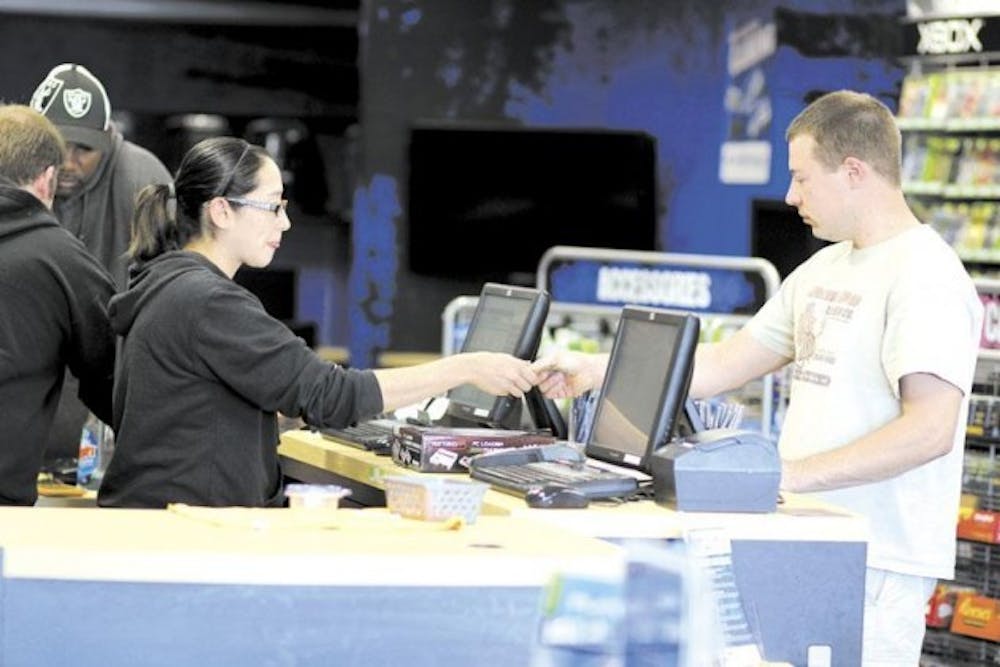Every Saturday, over 12 people fill a room where the rapid sound of tapping buttons is almost deafening. That constant sound comes to a stop when a flash of color appears on the screen, signaling yet another victory. The people go wild over the win and thirst for more of the action.
This is the Play N Trade video store where UB students and local residents gather every week to practice, compete and improve their skill in fighting games. This particular Saturday at in Tonawanda, N.Y. the games drawing the biggest crowds include Super Street Fighter 4: Arcade Edition, Ultimate Marvel vs. Capcom 3 and Tekken Tag Tournament 2.
Players alternate between playing games and socializing throughout the day, and there are always players discussing new game strategies and engaging in casual conversation or getting lunch at the Mighty Taco next door.
The tremendous sense of camaraderie is undisputable between the participants of this Saturday ritual.
"If you're playing against the same person every weekend for months then there's no way that there's not going to be a friendship or sense of community," said Jacob Foss, 19, of Tonawanda.
Players have been gathering at the Play N Trade since last year, when 27-year-old storeowner Matthew Winnicki and wife Cassondra agreed to host the Buffalo fighting game scene. The results have been an overwhelming success.
"It's cool to have people in the store, and customers always ask about [playing on Saturdays]," Winnicki said. "It's been a mutually beneficial relationship."
The noise is overwhelmingly prevalent at the Play N Trade during the gaming hours of 1 p.m. and 9 p.m. Nearly every game station entertains a small crowd watching the action unfold, and these crowds have a habit of dynamically expressing their relief or disappointment with a match's result, often at an ear-splitting decibel.
Winnicki, who says he's been playing video games since he can remember, feels the interpersonal nature of fighting games plays a big part in the communities that spawn around them.
"Other games seem like a very individual thing to me, but in fighting games you strive not to play online, so you have to go out and be social and find other people to play with," Winnicki said. "The store has its draw of people who have integrated into the community of people that come here. It's pretty cool to see, and everyone seems to get along."
Senior biomedical sciences major Eric Devlin, who has been playing fighting games since 1993, said the history of the genre also contributes to its social scene.
"There's definitely something special about fighting games and also where they came from," Devlin said. "Everybody always talks about the arcade scene, because it literally was you sitting down next to this other guy, and the loser loses their money."
The innate face-to-face interaction in fighting games creates a tremendous bond between players as not only competitive colleagues, but as friends.
"It's not uncommon that a trip to the arcade would become a trip to the diner afterwards or just talking for hours on end," Devlin said. "Then the conversations inevitably lead not to just games, but to life in general."
When these Saturdays begin to wind down and the crowd slowly begins filters out of the Play N Trade, the social aspect of this scene continues. Carpools are negotiated, as are plans for dinner or more late night practice sessions.
This group of gamers has a bond that combines friendship with a shared competitive fire that creates a unique social experience. Play N Trade has an open-door policy and welcomes all prospective world warriors to experience this phenomenon for themselves.
Email: arts@ubspectrum.com





